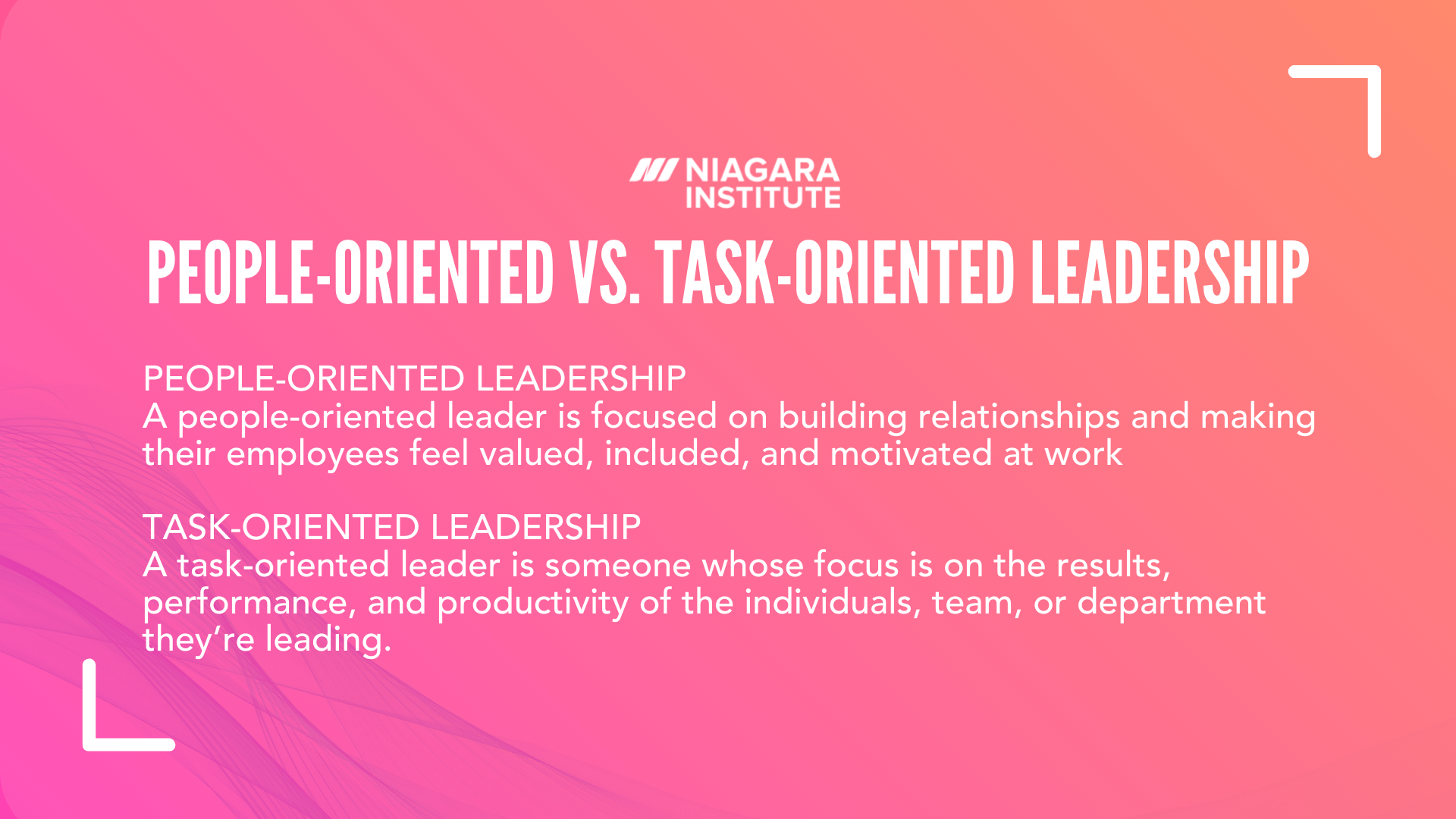5 min read
Are You A Team-Oriented Leader?
Leaders play a pivotal role in building and influencing their teams. They set the tone, behaviors, and expectations of how the team functions. Given...
2 min read
 Michelle Bennett
:
Apr 26, 2022 6:00:00 AM
Michelle Bennett
:
Apr 26, 2022 6:00:00 AM
.png)
Every people leader tends to lean towards one particular leadership style over another. For some, their focus is on the well-being of their employees and building a positive team culture. For others, their primary focus is on completing tasks and achieving goals on time, on budget, and as promised.
Keep in mind that there isn’t one leadership style better than another. Each comes with pros and cons and requires a level of judgment to deploy the right type of management in the right circumstances.
The first step to adapting your leadership style according to the circumstances is to identify which you naturally gravitate towards. To help you do so, here is an overview of the task-oriented leadership style vs. the people-oriented leadership style.
A task-oriented leader is someone whose top priority is getting tasks done to reach defined goals or targets by the specified deadline. Their focus is on the results, performance, and productivity of the individuals, team, or department they’re leading.
As one Chron article put it, “a task-oriented leader is likely to review a day's work through the prism of tasks. Was everything on the to-do list completed? If so, they likely deem the day a success. Checking off tasks from the to-do list matters most.”
Their strength is setting goals, creating an organized, step-by-step action plan, and then seeing it through to completion as planned. They clearly define the roles and responsibilities of those who work for them and delegate work based on the individual’s strengths and capabilities. Also, to prevent mistakes and delays that would compromise their ability to complete their tasks and achieve their goals, they frequently communicate with employees, offer constructive feedback, and implement processes that ensure any work completed meets their standards.
While this leadership style ensures that work gets done and motivates certain types of individuals, it can also cause stress, stifle creativity, negatively impact team culture, lead to demotivation, impede work-life balance, and increase turnover. As such, those leading people should not entirely rely on task-oriented leadership and instead, should incorporate aspects of people-oriented leadership into their approach.
A people-oriented leader is focused on building relationships and making their employees feel valued, included, and motivated at work. The following quote from Richard Branson nicely sums up this style of leadership, “Take care of your employees, and they will take care of your business. It’s as simple as that.”
Unlike a task-oriented leader who prioritizes the work itself, a people-oriented leader prioritizes the people doing the work and their well-being. They do this by investing time and energy into earning the trust and respect of employees, monitoring for signs of burnout, providing coaching, encouraging an employee’s professional development, and creating a positive team culture. They also value the insights and perspectives of their employees and seek them out when making decisions, even though they ultimately hold the authority and power to make such decisions on their own.
While the benefits of people-oriented leadership are significant and include increased job satisfaction, loyalty, creativity, innovation, and engagement, you should still be wary of relying solely upon this leadership style as that can cause its own problems, such as impaired decision-making and power imbalances.

The strongest leaders in today’s ever-evolving workplace do not rely solely on task-oriented leadership or people-oriented leadership. They adopt both depending on the circumstances in which they find themselves. Granted, the ability to do so naturally and with confidence takes training, practice, and of course, experience. All of which you can gain through a leadership training program like Leadership Fundamentals or with the support of a one-on-one professional coach whose focus is on your unique development needs as a people leader.

5 min read
Leaders play a pivotal role in building and influencing their teams. They set the tone, behaviors, and expectations of how the team functions. Given...
.png)
12 min read
Whether you’re early in your career or have many years of experience, developing leadership skills is not just a desirable trait; it’s necessary for...
![[Infographic] Top 10 Leadership Skills for Managers](https://www.niagarainstitute.com/hubfs/Leadership%20Skills%20for%20Managers%20(1).png)
5 min read
When you step into a people leadership role, one of your first thoughts is: what do I need to be a great manager? While you’ll need to tap into many...